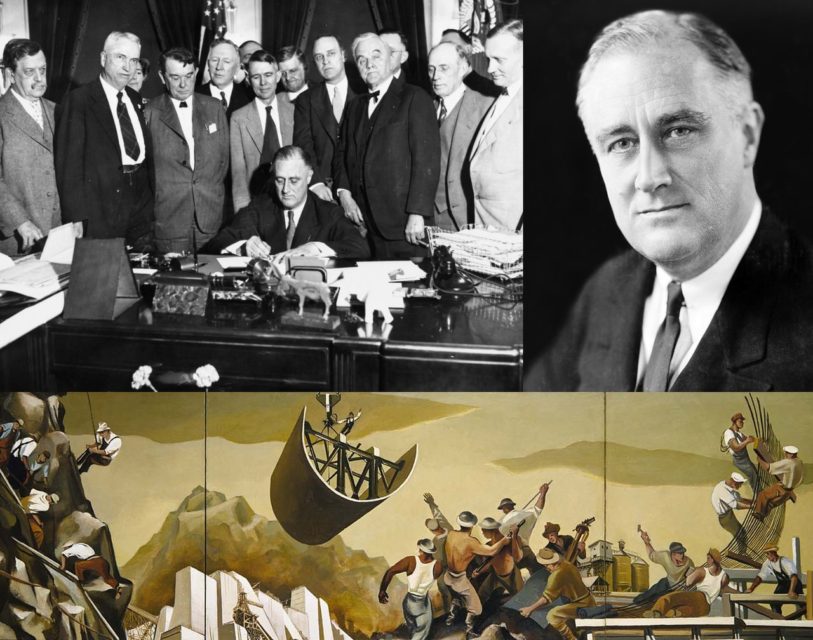Rex Krueger
Premiered 4 hours agoMore video and exclusive content: http://www.patreon.com/rexkrueger
Get the Plans: https://www.rexkrueger.com/store/plan...
Get the FREE Tipsheet: https://www.rexkrueger.com/articles/2…Tools and Materials in this build (affiliate):
Scaffold Leveling Jack Screw: https://amzn.to/2YRD8Ww
Hacksaw: https://amzn.to/2LOpQ9X
(This isn’t the one I used in the video, but I own it and it’s good for the price.)
Hex Shaft Drill Bits: https://amzn.to/2LJZg1I
Countersink: https://amzn.to/2LMuvZN
Small File: https://amzn.to/2LJDs6k (needs a handle)
My favorite file handles: https://amzn.to/2TPNPpr
Large spade bit for boring out the screw hole: https://amzn.to/2YHrDkDWoodwork for Humans Tool List (affiliate):
Stanley 12-404 Handplane: https://amzn.to/2TjW5mo
Honing Guide: https://amzn.to/2TaJEZM
Green buffing compound: https://amzn.to/2XuUBE2
Cheap metal/plastic hammer for plane adjusting: https://amzn.to/2XyE7Ln
Spade Bits: https://amzn.to/2U5kvML
Metal File: https://amzn.to/2CM985y (I don’t own this one, but it looks good and gets good reviews. DOESN’T NEED A HANDLE)
My favorite file handles: https://amzn.to/2TPNPpr
Block Plane Iron (if you can’t find a used one): https://amzn.to/2I6V1vh
Vaughn Bear Saw: https://amzn.to/2WoIzLP
Dewalt Handsaw: https://amzn.to/2IAHX1Z
Stanley Marking Knife: https://amzn.to/2Ewrxo3
Mini-Hacksaw: https://amzn.to/2QlJR85Follow me in Instagram: @rexkrueger
Get my woodturning book: http://www.rexkrueger.com/book
July 11, 2019
Add a vise to the $30 Work Bench
To lose one VCDS may be regarded as misfortune; to lose five looks like horrific leadership failure
(Apologies to Oscar for my misappropriation of his phrasing for the title of this post.) The current Vice-Chief of the Defence Staff has announced his resignation. Lieutenant General Paul Wynnyk will resign from his current role after rumours circulated that he was to be replaced with former VCDS Vice-Admiral Mark Norman. Ted Campbell has more:
I see, from a story on Global News, broken by Mercedes Stephenson, of Global and David Pugliese (Post Media), two journalists with very good sources inside DND and the Canadian Armed Forces, that “The second in command of Canada’s military Lt.-Gen. Paul Wynnyk is resigning after he said Chief of the Defence Staff General Jonathan Vance planned to replace him as the vice chief of the defence staff with Vice-Admiral Mark Norman … [but] … Vance then reversed that plan weeks later, according to Wynnyk, when Norman settled with the government and retired from the military.”
Lieutenant General “Wynnyk was the fifth vice chief to serve under Vance, and questions are now being raised about his leadership, senior military sources told Global News … [and, the report says] … There are now questions about who will fill the job next. No one appears to be ready, the sources said.” With the utmost respect to Mercedes Stephenson’s sources, who are, I suspect three and two-star admirals and generals, almost any general officer is “ready” to be Vice Chief of the Defence Staff or to fill almost any other “flag” appointment (jobs like surgeon general and the judge advocate general being obvious exceptions). I lived through times when the head of the Army’s equipment engineering branch was not an engineer ~ but was picked specifically because he could lead and manage people and could leave the “engineering” to subordinates, and when a logistics officer ran the Army, to the horror or a few combat branch dinosaurs, and when a Signals officer was Chief of the Defence Staff, too, because, at the time, the top leaders still understood that generals are generalists. I will assert, some will disagree but they are wrong, that almost every rear admiral and major general, from almost every corner of the military, is “ready” right now, to be Chief of the Defence Staff and almost every commodore and brigadier general is equally “ready” to be the Vice Chief. If that is not the case then the Canadian Forces’ leadership system is in a crisis right now, which only a wholesale slaughter of admirals and generals will rectify … or else there will be a slaughter of young Canadian men and women when our armed forces muct face a near-peer enemy.
At the risk of repeating myself:
- The current military command and control (C²) superstructure is beyond bloated, it is morbidly obese;
- The military C² system has things back-asswards ~ staff officers outrank combat commanders. We have commodores and brigadier generals sitting behind big desks in Ottawa when they ought to be commanding flotillas, brigades and air groups. The desks in HQs should be occupied by Navy captains and commanders and Army and RCAF colonels and lieutenant colonels, all of whom are, already, proven executives;
- The CDS should be a three-star officer, a vice admiral or a lieutenant general ~ Canada, with only about 110,000 men and women, regular and reserve, in uniform, doesn’t need a four-star CDS. Reducing her or his rank would be an act “pour encourager les autres;”
- The military’s command culture must start with getting the foundation right. The recruiting, selection, training and development of junior leaders, corporals and 2nd lieutenants (using the Army as my example), must be the highest priority for every single senior officer. If the foundation is solid then developing admirals and generals will not be a problem. If, as I suspect, the foundation is weak, if there is rank inflation, as I assert there is, at the tank/rifle section and troop/platoon command levels, then problems are going to persist and be magnified at the unit (ship, regiment or squadron), formation (group, brigade, wing and higher) and command levels and in National Defence HQ, too. Eventually, if the foundation is weak then we, Canadians will pay the price in blood … the blood of our sons and daughters and grandsons and granddaughters.
From Aerobatics to Terror Bombing | Between 2 Wars | 1927 Part 2 of 2
TimeGhost History
Published on 10 Jul 2019With thousands of planes left over from World War One, hobby pilots and entrepreneurs set out to create the modern airline industry. Charles Lindbergh, Amelia Earhart, and many more set record after record, while airplane manufacturers start the creation of passenger, freight planes, and a new generation of aerial weapons.
Join us on Patreon: https://www.patreon.com/TimeGhostHistory
Hosted by: Indy Neidell
Written by: Joram Appel and Spartacus Olsson
Directed and Produced by: Astrid Deinhard and Spartacus Olsson
Executive Producers: Bodo Rittenauer, Astrid Deinhard, Indy Neidell, Spartacus Olsson
Creative Producer : Joram Appel
Post Production Director: Wieke Kapteijns
Research by: Joram Appel
Edited by: Daniel WeissArchive by Reuters/Screenocean https://www.screenocean.com
A TimeGhost chronological documentary produced by OnLion Entertainment GmbH
The genesis of the administrative state during the Great Depression
Leonid Sirota provides some interesting background on the rise of the administrative state during the 1930s:

Top left: The Tennessee Valley Authority, part of the New Deal, being signed into law in 1933.
Top right: FDR (President Franklin Delano Roosevelt) was responsible for the New Deal.
Bottom: A public mural from one of the artists employed by the New Deal’s WPA program.
Wikimedia Commons.
To a degree that is, I think, unusual among other areas of the law, administrative law in the United States and, to a lesser extent, in Canada is riven by a conflict about its underlying institution. To be sure there, there are some constitutional lawyers who speak of getting rid of judicial review of legislation and so transferring the constitution to the realm of politics, rather than law, but that’s very much a minority view. Labour unions have their critics, but not so much among labour lawyers. But the administrative state is under attack from within the field of administrative law. It has, of course, its resolute defenders too, some of them going so far as to argue that the administrative state has somehow become a constitutional requirement.
In an interesting article on “The Depravity of the 1930s and the Modern Administrative State” [PDF] recently published in the Notre Dame Law Review, Steven G. Calabresi and Gary Lawson challenge the defenders of the administrative state by pointing out its intellectual origins in what they persuasively argue was
a time, worldwide and in the United States, of truly awful ideas about government, about humanity, and about the fundamental unit of moral worth—ideas which, even in relatively benign forms, have institutional consequences that … should be fiercely resisted.
That time was the 1930s.
Professors Calabresi and Lawson point out that the creation of the administrative state was spearheaded by thinkers ― first the original “progressives” and then New Dealers ― who “fundamentally did not believe that all men are created equal and should democratically govern themselves through representative institutions”. At an extreme, this rejection of the belief in equality led them to embrace eugenics, whose popularity in the United States peaked in the 1930s. But the faith in expertise and “the modern descendants of Platonic philosopher kings, distinguished by their academic pedigrees rather than the metals in their souls” is a less radical manifestation of the same tendency.
The experts, real or supposed ― some of whom “might well be bona fide experts [while] [o]thers might be partisan hacks, incompetent, entirely lacking in judgment beyond their narrow sphere of learning, or some combination thereof” ― would not “serve as wise counselors to autonomous individuals and elected representatives [but] as guardians for servile wards”. According to the “advanced” thinkers of the 1930s, “[o]rdinary people simply could not handle the complexities of modern life, so they needed to be managed by their betters. All for the greater good, of course.” Individual agency was, in any case, discounted: “the basic unit of value was a collective: the nation, the race, or the tribe. Individuals were simply cells in an organic whole rather than ends in themselves.”
H/T to Colby Cosh for the link.
Unofficial High Speed Tour of Borden Base Military Museum
The_Chieftain
Published on 8 Jun 2019Canadian Forces Base Borden is located about an hour’s drive North of Toronto. The base is open access, so anyone can go to the museum.
In addition to the vehicles at the museum, there are others scattered as monuments around the base. I encountered a T-72 and T-55 on my way out the gate.
QotD: English is weird
English started out as, essentially, a kind of German. Old English is so unlike the modern version that it feels like a stretch to think of them as the same language at all. Hwæt, we gardena in geardagum þeodcyninga þrym gefrunon – does that really mean “So, we Spear-Danes have heard of the tribe-kings’ glory in days of yore”? Icelanders can still read similar stories written in the Old Norse ancestor of their language 1,000 years ago, and yet, to the untrained eye, Beowulf might as well be in Turkish.
The first thing that got us from there to here was the fact that, when the Angles, Saxons and Jutes (and also Frisians) brought their language to England, the island was already inhabited by people who spoke very different tongues. Their languages were Celtic ones, today represented by Welsh, Irish and Breton across the Channel in France. The Celts were subjugated but survived, and since there were only about 250,000 Germanic invaders – roughly the population of a modest burg such as Jersey City – very quickly most of the people speaking Old English were Celts.
Crucially, their languages were quite unlike English. For one thing, the verb came first (came first the verb). But also, they had an odd construction with the verb do: they used it to form a question, to make a sentence negative, and even just as a kind of seasoning before any verb. Do you walk? I do not walk. I do walk. That looks familiar now because the Celts started doing it in their rendition of English. But before that, such sentences would have seemed bizarre to an English speaker – as they would today in just about any language other than our own and the surviving Celtic ones. Notice how even to dwell upon this queer usage of do is to realise something odd in oneself, like being made aware that there is always a tongue in your mouth.
John McWhorter, “English is not normal”, Aion, 2015-11-13.







